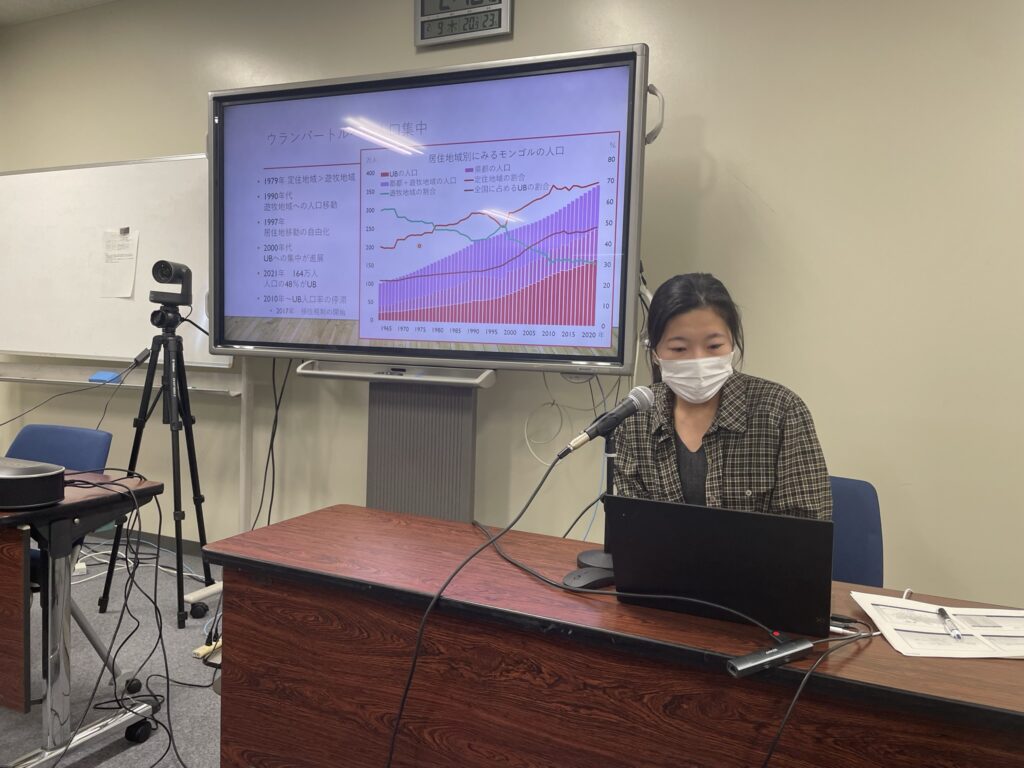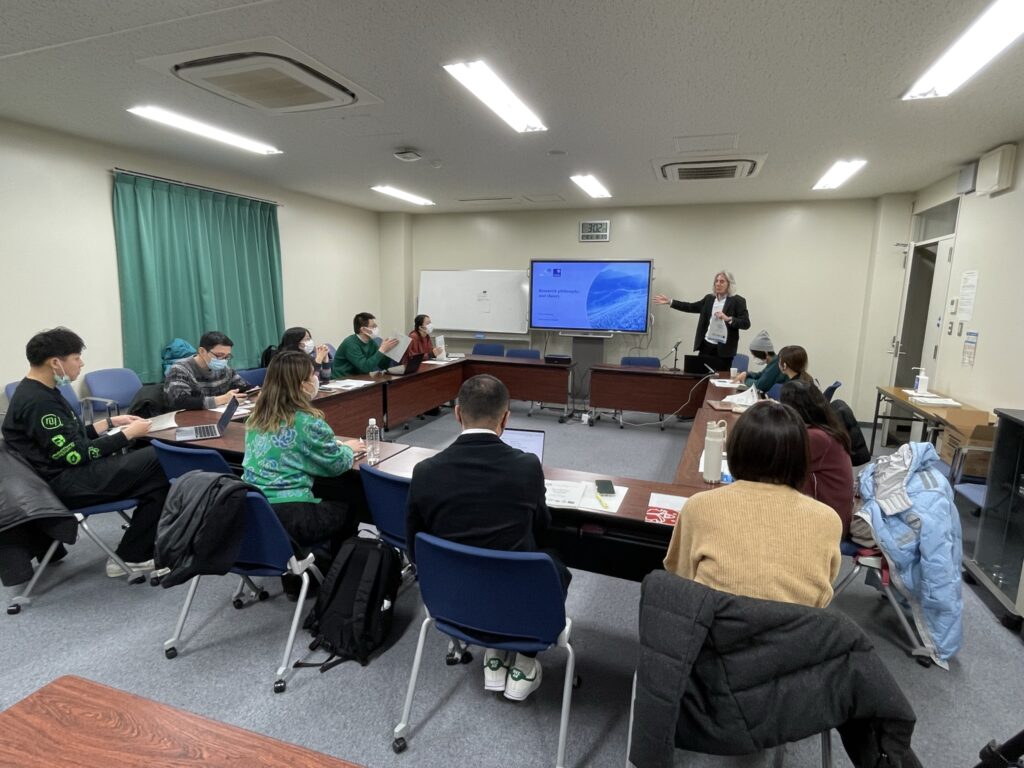By Troy Sternberg and Takahiro Tomita
What does rural to urban migration signify in contemporary Mongolia? Does it represent depopulation of the countryside, a pastoral diaspora or rational economic choice? Paired with urban-to-suburban grassland movement and dairy production near cities, mobility reflects an ongoing process physically and conceptually in the country. These were key themes addressed in our Transformation of Urban-Steppe Relationships and Well-being in Contemporary Mongolia forum. Through talks, discussion and evaluation ideas emerged about migration in Mongolia’s changing social context.
The exciting event brought together two creative projects on February 9-10, 2023. The seminar/workshop at Kobe University, Japan joined the Post-Pandemic in Inner Asian Societies (PPIA) and the East Eurasia Studies Project (EESP). The host projects share research on changing human dimensions in Mongolia and Inner Asia. A half-day meeting on the 9th stressed the theme of mobility and rural-urban connectivity in Mongolia. This was followed by an academic writing workshop on the 10th. As a member of both projects, Dr Takahiro Tomita, Graduate School of Intercultural Studies, Kobe University, organised the Transformation events featuring the collaboration of several Japanese universities and the University of Oxford, UK.

In recent decades demographic changes in Mongolia have changed the relationship between grasslands (khodoo) and cities (khot). Our speakers debated contemporary urban-rural transitions from anthropological and geographical perspectives. Troy Sternberg identified a pastoral diaspora; as true nomads at heart citizens move from rural to urban centres, within the country (particularly for mining) and, perhaps surprisingly, internationally with 10% of the population living abroad. Yuko Matsumiya stressed that in Ulaanbaatar the population is rapidly increasing due to the influx of people from rural areas. Their connection with the grasslands is indispensable for ger district residents to realize a better life. Issues are often focused on as an urban problem, yet there is interdependence between the city and the grasslands.
From a similar perspective, Takahiro Tomita discussed family-based dairy production. This has made it possible to meet the growing demand for food in urban areas whilst increasing food safety and health consciousness of urban residents. Local supply chains for dairy products in peri-urban areas are unstable and vulnerable to social and economic changes, infectious diseases, and other factors. Timely perspectives from Buho Hoshino and Akira Kamimura used a Covid-19 lens to examine the pandemic’s impact on pastoralism and to ask if this changed mobile pastoralism in Mongolia. It was then pointed out that the impact of Covid-19 on rural pastoralists extends not only to economic damage, but also to their self-perception and image to the outside community. Three discussants – Moe Terao, Yuko Morinage and Takahiro Ozaki – then drew the themes together and critiqued the talks for the in-person and online audience.
On the second day an Academic Writing workshop was presented to encourage Japanese academics, post-docs and students to write for international journals in English. The material and talk were drawn from PPIA’s 2022 English Writing Summer School at Mongolian National University. An extensive pdf document (85 pages) and compressed 40-page booklet were distributed to the participants. Whilst in Europe Japan is considered a major academic country, surprisingly, local attendants thought Japan a small research nation. This stressed the role for a more internationalised role and stronger engagement for Japanese academia. In fact, Japan can provide a valuable East Asian research perspective that would be most welcome globally; to do this publishing in English is essential in today’s world. The Academic Writing event was part of PPIA’s ongoing contribution to increasing Japanese researchers’ participation and presence in top-level international research to receive its deserved recognition.

Several organisations were represented at the event. In Japan the list includes the National Institutes for the Humanities, Global Area Studies Program; East Eurasia Studies Project and the Research Institute for the Promoting Intercultural Studies (Promis), Kobe University. The seminar was jointly sponsored by the Japan Society for the Promotion of Science (JSPS) International Joint Research Program with the United Kingdom Comparative Study on Inland Asian Pastoral Societies in the Post-Colonial Period. PPIA is a collaboration between the UK’s Economic and Social Research Council (ESRC) and JSPS. This is based at the University of Oxford, Kagoshima and several Japanese universities.

No responses yet